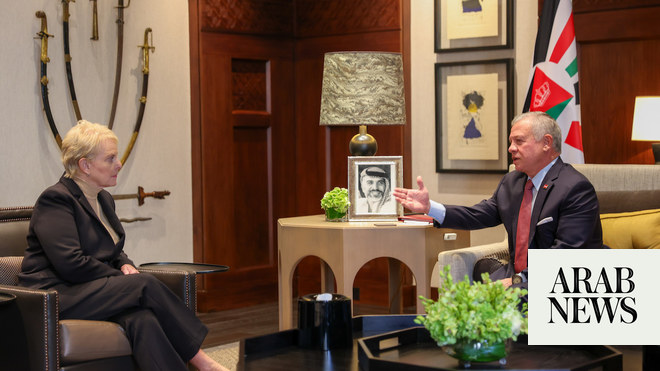
Prop Francis kicked off on Monday a visit to Myanmar by holding talks with its powerful military chief as the country fends off international criticism of its handling of the Muslim Rohingya crisis and United States accusations that it has committed ethnic cleansing against the persecuted minority.
The popes first meeting in Yangon was with military commander Senior General Min Aung Hlaing in St. Marys Cathedral in the heart of the Southeast Asian nations largest city.
The general is in charge of the security operations in Rakhine state, where a military crackdown against the Muslim minority has sent more than 620,000 Rohingya into neighboring Bangladesh.
"They discussed the great responsibility of authorities of the country in this time of transition," Vatican spokesman Greg Burke said after the 15 minutes of talks, which were followed by an exchange of gifts.
Francis presented the general with a commemorative medal of his visit, and Min Aung Hlaing gave the pope a harp in the shape of a boat and an ornate rice bowl, Burke said.
Members of ethnic minority groups in traditional dress welcomed Francis at Yangon airport, and children presented him with flowers as he stepped off his plane.
He waved through an open window at dozens of children waving Vatican and Myanmar flags and wearing T-shirts with the motto of the trip - "love and peace" - as he set off in a car.
Only about 700,000 of Myanmars 51 million people are Roman Catholic. Thousands of them traveled by train and bus to Yangon, and they joined crowds at several roadside points along the way from the airport to catch a glimpse of the pope.
The Pope will also visit Bangladesh, where the Rohingya have fled to escape what Amnesty International has dubbed "crimes against humanity".
Myanmars army has denied accusations of murder, rape, torture and forced displacement that have been made against it.
Large numbers of riot police were mobilized in Yangon but there were no signs of any protests.
The trip is so delicate that some papal advisers have warned Francis against even saying the word "Rohingya", lest he set off a diplomatic incident that could turn the countrys military and government against minority Christians.
The Rohingya exodus from Rakhine state to Bangladeshs southern tip began at the end of August, when Rohingya attacked security posts and the Myanmar army launched a counter-offensive.
US Secretary of State Rex Tillerson last week called the military operation "ethnic cleansing" and threatened targeted sanctions for "horrendous atrocities".
Myanmars government has denied most of the accusations made against it, and the army says its own investigation found no evidence of wrongdoing by troops.
Myanmar does not recognize the Rohingya as citizens nor as members of a distinct ethnic group with their own identity, and it even rejects the term "Rohingya" and its use.
Many people in Myanmar instead refer to members of the Muslim minority in Rakhine state as illegal migrants from Bangladesh.
He will greet a delegation of Rohingya Muslims and meet with Bangladeshs political and religious leadership in Dhaka. Masses for the Catholic faithful and meetings with the local church hierarchy round out the itinerary in each country.
In the Kutupalong refugee camp in southern Bangladesh, Senu Ara, 35, welcomed Francis arrival for what he might be able to do for the refugees.
"He might help us get the peace that we are desperately searching for," she said. "Even if we stay here he will make our situation better. If he decides to send us back, he will do so in a peaceful way."
The most tense moments of his Myanmar visit were expected to be the private meeting with the army chief and, separately, with civilian leader Aung San Suu Kyi on Tuesday.
Suu Kyis reputation as a Nobel Peace Prize laureate has been tarnished because she has expressed doubts about the reports of rights abuses against the Rohingya and failed to condemn the military.
The pope has already used the word Rohingya in two appeals from the Vatican this year.
Asked if he would say it in Myanmar, Burke said Francis was taking the advice he had been given seriously, but added: "We will find out together during the trip ... it is not a forbidden word".
A hardline group of Buddhist monks, previously known as Ma Ba Tha, said it welcomed the popes visit but warned, without elaborating, of "a response" if he spoke openly about the Rohingya.
"I hope he doesnt touch on sensitive issues that Myanmar people couldnt accept," said Tawparka, a spokesman for the group, who goes by a single name. "Theres no problem if he talks about Islam, but its unacceptable if he speaks about Rohingya and extreme terrorists."
Days before the popes visit, Myanmar and Bangladesh inked a deal vowing to begin repatriating Rohingya refugees in two months.
But details of the agreement -- including the use of temporary shelters for returnees, many of whose homes have been burned to the ground -- raise questions for Rohingya fearful of coming back without guarantees of basic rights.












